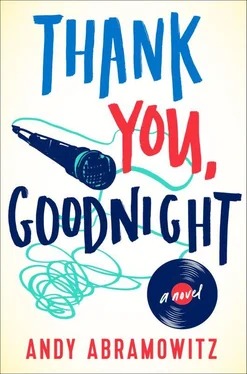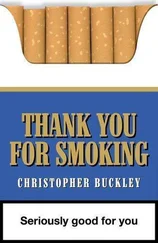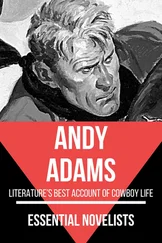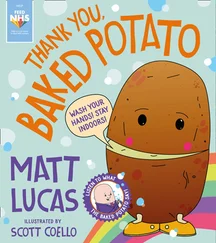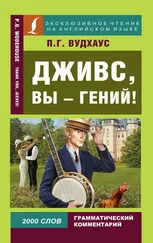Literally.
* * *
The scenery wore the refreshed, vital colors of early evening when Heinz-Peter steered us back up the stone driveway. The day had begun to end.
A dinner invitation had been repeatedly extended—if he now considered me a friend, he had a rather twisted concept of the word—and roundly rejected. I’d survived H-P’s fist, his driving, and the handiwork of the village dentist. It seemed ungracious to push my luck. I waited in the car while the nutjob fetched my bag from inside his house.
Sensation was returning to my face. The anesthesia had worn off and yet the throbbing pain that I’d considered inevitable, given the crude dentistry practiced upon me, had not come. I climbed out of the car to breathe the sweet mountain air and consider the logistics of getting home.
And that was my last glimpse of Swiss serenity.
Just then, the front door of the house opened and a dozen or so teenagers poured out onto the lawn. I looked on dumbly at the collection of youths that had materialized out of nowhere, when Tereza appeared on the front step, hovering over all of us. Like the shepherd of the flock, she pointed directly at me. “There he is!”
Before I could grasp what was happening, this babbling little mob came swimming over to me and practically pinned me up against H-P’s jalopy. They called out my name, they shook my hand, they smiled goofy smiles. They were loud and unruly and unacquainted with notions of personal space, and it was all so fucking weird that I was certain I was still conked out and drugged in the dentist’s chair.
As Tereza stepped down onto the lawn, hands tucked deep in the pockets of her zippered hoodie, looking self-satisfied and casual, I caught her attention. What the fuck?
“I love your music,” said one shabbily dressed girl who couldn’t have been more than a kindergartener the last time any of my songs had played on the radio. A boy with a tepid, desperate growth of facial hair stood next to her and echoed the sentiment. “I grew up on your albums,” he said through a mild accent. On came absurd rapid-fire declarations and inquiries that competed for my attention: “I know every lyric of every song you ever recorded!” (A dim accomplishment; we only had two albums.) “When is the band getting back together?” “Are there any plans to release rarities, outtakes, bonus tracks?” Even sadder, some of these bedraggled fools clutched Tremble memorabilia—copies of my CDs, album jackets, photos—and held them up to my face for me to sign. It was as if they were all part of a pathetically misguided cult, celebrating my guest appearance at their compound. I had no idea what was going on; I just knew I wasn’t happy about it. Was the London exhibit not a sufficiently elaborate means of ridicule? Had Heinz-Peter hired a herd of young extras to pretend to adore me?
I reached into the crowd and grabbed Tereza’s arm. “You want to tell me what’s going on here?”
She pursed her lips. “What do you mean? I knew they’d want to meet you. How’s your mouth?”
“Who are these people?” I pressed. “And what’s wrong with them?”
She held out an open hand to the prattling sea of losers. “They’re fans.”
I was at a total loss. “Of what?”
The front door swung open again and Heinz-Peter stepped out to tower over the merriment. He raised up his arms and laughed with the showmanship of a mad carnival barker.
I turned to Tereza. “It’s been a really long day. Can you give me a lift to the train station?”
It was then that I became aware of a deep grinding rumble behind me. It grew louder and louder, like a rusty chain saw, at last revealing itself as a weathered, puke-green van waggling up the driveway. It had barely stumbled to a stop when its doors burst open on all sides and a giddy throng of adolescents of all shapes, sizes, colors, and acne concentrations leapt out to join the commotion.
I surveyed this most motley crew. Everyone was of high school or college age and clad in attire I could only describe as densely European and weather-nonspecific. A brown suit here, a knit slouchy hat there. A plum-cheeked bleached blonde with vampish eye makeup and a London Calling T-shirt here, a bespectacled boy in a striped Izod with raised collar there. All of these boneheads wanted a word with me.
Then a lanky dude in an army jacket stumbled out from behind the wheel of the van, his gait unsteady. He instantly drew my attention because, for one thing, he seemed to be drunk, and for another, he’d been driving. Listing to the side as if he might collapse onto the grass, the guy locked me in the crosshairs of a finger gun and called out, “You know it, brother! You know it!” His relationship to the proceedings was unclear. As was mine.
I found Tereza in the mix and leveled a scowl at her. “Seriously—what the hell?”
She tossed me a careless little shrug and walked away, leaving me at the epicenter of a puzzling little blowout in the land that music forgot.
* * *
Somehow I ended up sitting on the front step, nursing a Belgian blond ale that six children had competed to stuff into my hand. Around me were three members of Tereza’s posse—a boy of peach fuzz and cracking voice, and two breezily chatty girls.
“How did Tremble get acquainted with Cameron Crowe?” the boy wanted to know. For some worthless reason, he was desperate to learn the genesis of our involvement in Ballad of the Fallen , the Crowe-directed film that made a spectacular hit out of a song that had already appeared on our debut album. “Did you write ‘It Feels like a Lie’ specifically for the movie, or did Cameron Crowe just really like it on your album and ask to use it?”
“Tell me something,” I replied. “What are all you people doing here?”
“Do you still hang out with famous rock stars?” the girl to my left inquired.
“I’m a lawyer, you understand?”
“What’s going on with the rest of the band? What are Jumbo, Warren, and Mackenzie doing? For years I’ve been checking for solo albums, but I can never find any.”
“Solo albums? They’re all teachers or locksmiths or insurance brokers now.”
Until Warren had recently come cackling back into my life, I hadn’t spoken to or heard from any of those people since we split up. It was easier than I would’ve imagined to allow all that time and distance to wedge into the spaces between us. When things ended, not only was there no longer any reason for us to talk, much less travel en masse like a camp bunk, but we were all in need of some time apart. On top of all that, there was that ugly little secret I’d been shouldering, the one that was at least partially to blame for why we all ended up having to look for other work in the first place. It wasn’t just my lame songwriting that did us in; it was my clouded judgment. It was just as well I didn’t have to face them and constantly be reminded of it. Especially Mackenzie, whose sudden absence in my life made things both a little bit easier and a whole lot harder. Of all the people from those days, Mack was the one who required the most effort to forget.
None of these misguided youths had asked me the most obvious question of all: how had a god such as myself ended up in this tiny village nowhere near anywhere? Which was a shame, because that chain of events was far more entertaining than any war story I could’ve told about my life in the music business. Instead, this strange tribe simply accepted the miracle of my presence and proceeded to interrogate me on trivialities—like the inspiration for the girl described in “New Morning Azalea,” a song I’d forgotten I’d written. A song everybody had forgotten I’d written.
“If I had to pick a favorite person in the band, I’d have to say Jumbo,” one girl mused. “No offense.”
Читать дальше
